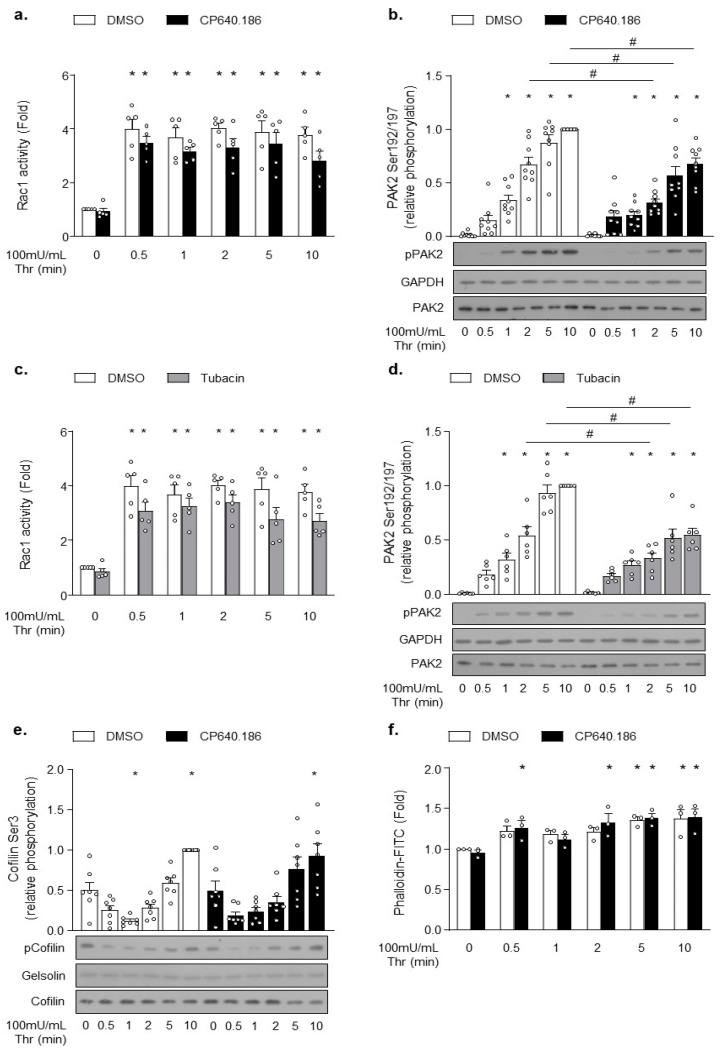Figure 4.
CP640.186-induced ACC inhibition reduces the Rac1−PAK2 pathway activation without impacting actin polymerization upon thrombin stimulation. (a,b,e,f) Washed human platelets were pre-incubated for 2 h with dimethyl sulfoxide (DMSO) or CP640.186 (60 μM) or (c,d) for 1 h with DMSO or tubacin (10 µM), before being stimulated with thrombin (100 mU/mL) at different time points. (a,c) Rac1 activity was assessed by means of G−LISA in whole platelet lysates. Data were expressed as means ± SEM (n = 5). * p-value ≤ 0.01 in relation to unstimulated conditions. Data were analyzed using 2-way ANOVA. (b,d,e) Whole platelet lysates were subjected to western blot and probed using phophoPAK, PAK2, GAPDH, phosphoCofilin, Cofilin, or gelsolin antibodies. Data were expressed as means ± SEM (at least n = 7). * p-value ≤ 0.05 in relation to unstimulated condition. # p-value ≤ 0.05 in relation to DMSO conditions. Data were analyzed using 2−way ANOVA (analysis of variance). (f) Platelets were stained with FITC−conjugated phalloidin (10 µM) for 1 h. F-actin content was analyzed by means of flow cytometry. Data were expressed as means ± SEM (n = 3). * p-value ≤ 0.05 in relation to unstimulated conditions. Data were analyzed using 2−way ANOVA.

